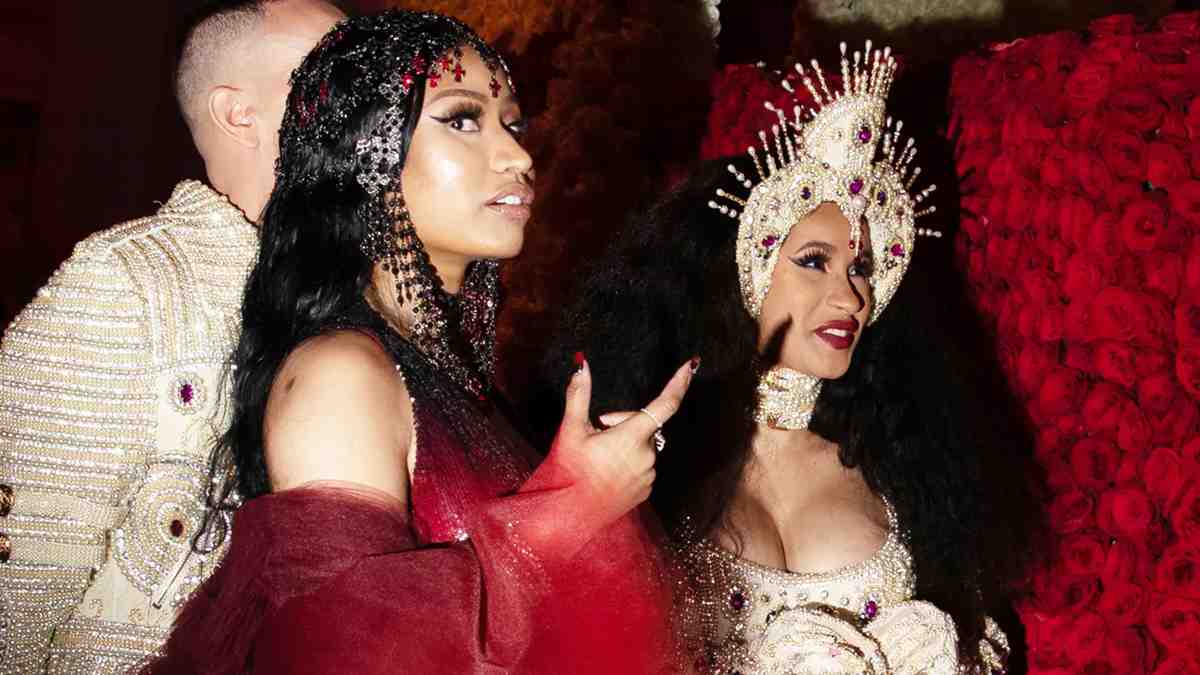The Blueprint: Madonna and Britney
Madonna set the standard in the early 1990s. With her album Erotica and the infamous Sex book, she pushed boundaries that had never been touched in mainstream pop. She was called vulgar, banned on TV, and branded a bad influence, yet she rewrote what pop stardom could look like.

A few years later, Britney Spears walked into the same trap. Her “…Baby One More Time” schoolgirl image turned her into America’s sweetheart and tabloid target all at once. As she grew bolder in her music and performances, the media turned on her, questioning whether she was “too provocative.” Britney’s career became a case study in how the industry builds women up only to tear them down when they dare to change.
The Rap Vanguard: Nicki and Cardi
By the 2010s, Nicki Minaj and Cardi B redefined how women could use sexuality in music. Nicki’s Anaconda video broke records and broke the internet, while Cardi B’s WAP became both a feminist anthem and a lightning rod for moral panic.

What stood out was the hypocrisy. Male rappers had been bragging about sex for decades without scrutiny. When Nicki and Cardi flipped the script, critics accused them of “going too far.” Yet their success showed that audiences were ready for women to own the narrative, even if society wasn’t.
The New Era: Taylor and Sabrina
Fast forward to 2025. Taylor Swift, once the ultimate “girl next door,” is now experimenting with a showgirl persona. Album covers, bold photoshoots, and sultry lyrics have divided her fanbase. Some say it doesn’t match the Taylor they grew up with; others argue it’s simply an artist evolving on her own terms.

Sabrina Carpenter, meanwhile, has taken the spotlight as pop’s newest provocateur. Her album Man’s Best Friend sparked backlash before it even dropped. The cover image, showing her on her knees with a man pulling her hair, was called “degrading” by some and “satire” by others. The album itself turned out to be playful, cheeky, and far from shocking, but the controversy proved how easily female sexuality still rattles audiences.
The Real Issue:
The backlash these women face isn’t really about the music. It’s about control. When female pop stars decide how to present their sexuality, society struggles to accept it. Critics call it a bad influence, fans call it “out of character,” and commentators fall back on the same old labels.
Decades after Madonna was told she’d gone too far, nothing has really changed. Female sexuality in pop still feels “radical”, not because it is, but because society keeps refusing to move on.
Conclusion:
From Madonna to Sabrina Carpenter, the cycle repeats: outrage, debate, judgment. The music evolves, the aesthetics shift, but the conversation remains stuck. Until society stops policing how women choose to express themselves, every new era will look like the old one, just dressed in a different costume.
